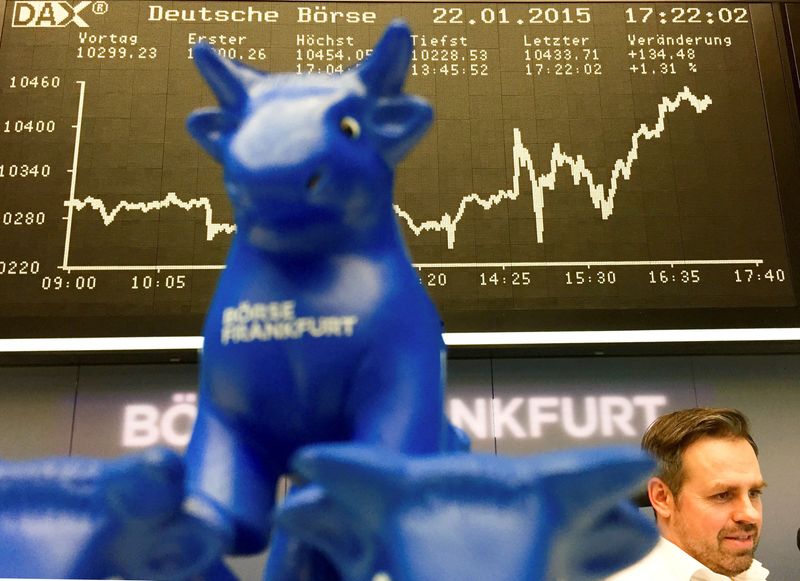
© Reuters
By Peter Nurse
Investing.com – European stock markets are expected to open higher Tuesday, recovering after last week’s brutal selloff, but concerns remain that aggressive central bank rate hikes to tackle inflation could spark a global recession.
At 2 AM ET (0600 GMT), the contract in Germany traded 0.7% higher, in France climbed 0.5%, and the contract in the U.K. rose 0.4%.
The main European indices are expected to continue Monday’s gains of around 1% as investors look for bargains in the wake of last week’s hefty losses as a number of global central banks tightened monetary policies to tame red hot inflation.
The U.S. increased interest rates by 75 basis points, its largest increase since 1994, the unexpectedly lifted rates by 50 basis points and the implemented its fifth consecutive 25 basis point hike.
Additionally, European Central Bank President Christine Lagarde restated on Monday the central bank’s intention to raise in July and September, suggesting that policymakers remain keen to tackle even after the volatility in the Eurozone’s bond markets.
Surging inflation and the higher interest rates to combat this has resulted in corporate distress in companies in Germany, the U.K., France, Spain, and Italy reaching the highest levels since August 2020, according to the Weil European Distress Index.
Elsewhere, investors will be closely following the political situation in France after weekend elections delivered a hung parliament.
President is expected to invite all political parties able to form a group in the new parliament for talks later Tuesday, with political paralysis possible if talks fail.
The European Union is also expected to finalize the details of a 9 billion euro ($9.5 billion) financial package for Ukraine in the coming days after the European Commission recommended last week the war-torn nation be granted candidate status to join the union.
Oil prices rose Tuesday, regaining some of last week’s hefty losses as traders focused once more on the tight supply of crude coupled with the prospect for higher U.S. and China demand in the near term.
By 2 AM ET, futures traded 1.9% higher at $110.02 a barrel, while the contract rose 0.9% to $115.12.
Both benchmarks posted their first weekly decline since April last week on concerns that aggressive monetary tightening could result in a global recession and fuel demand destruction.
The WTI contract dropped over 9% last week, and didn’t trade on Monday as it was a U.S. public holiday, while Brent fell over 7% last week, and only clawed back 0.9% in the previous session.
Additionally, fell 0.2% to $1,836.10/oz, while traded 0.1% higher at 1.0519.


Be the first to comment